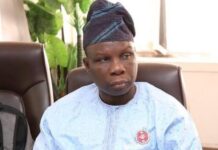Nigeria’s Calamitous Movement: Which way out? (II), by Prof. MK Othman
Deep Thoughts
This is a corollary to last week’s piece in which economic and security issues were discussed. Today, I am dwelling on the education and health sectors. Educationally, the drift is so glaring that Nigerians have no confidence in primary and secondary school levels of education.
NECO and SSE results have lost their meanings alongside their values and importance. “Miracle centres” and high-level sharp practices have rendered the results from NECO and SSE almost useless. Some of us in the university system are no longer impressed with the number of credits a child has in his/her NECO or SSE results. Some parents believe in bribing their way for their children to pass exams even at the tertiary level through monetary inducement and other gratifications.
READ ALSO: Nigeria’s Calamitous Movement: Which way out?, by Prof. MK Othman
In the end, such students undergo prescribed educational programs without obtaining the relevant knowledge of the subjects. Paper qualifications without the knowledge are just useless, deceptive, and injurious to society. The consequences will be so dire for the nation, pushing it into an abyss of insecurity, squalor, and poverty. The picture of the dysfunctional educational system in Nigeria today is best captured by a famous quotation of Nelson Mandela of blessed memory who said: “destroying any nation does not require the use of atomic bombs or the use of long-range missiles…., it only requires lowering the quality of education and allowing cheating in the examinations by students, patients die at the hands of such doctors, buildings collapse at the hands of such engineers, money is lost in the hands of such economists and accountants, humanity dies at the hands of such religious scholars, justice is lost at the hands of such judges”.
Presently, the university system has been shut down since February 14th, 2022, due to industrial action embarked first by ASUU and then by other university’s in-house unions. The government woefully failed to address the grievances of the university’s workers despite several years of discussion, signed agreements, counter-signing, and intense advocacies. Disappointedly, topnotchers at the government level are currently worried about how to secure electoral successes for the 2023 election and the closure of the universities seems to be the least worry if any.
Ironically, yesterday’s high-pitch wailers against the lackadaisical attitude of Johnathan’s government on education are today in the driving seat with the enormous capability of righting the wrong. However, the situation seems to be getting worst by the day. To use the expression of Prof Toba Alabi, an erudite professor of political science; “this is an incredible oxymoron”.
Well, concerns about the falling standard of education is for the children who are fortunate enough to attend school, as there are millions of other children out of school. Three years ago, a survey conducted by the United Nations Children’s Fund (UNICEF) indicated that the population of out-of-school children in Nigeria rose from 10.5 million in 2010 to 13.2 million in 2019.
On health matters, thirty years ago, hospitals were described as mere consulting clinics. Today, the government hospitals have graduated for the worse from mere consulting clinics to where even the mere consultations must be paid for by those who can afford them. Life expectancy is the major indicator of effective health care services in a country. Life expectancy for Nigeria as of 2017 was 54 years of age, much lower than the world average age of 72 years and even lower than the average for Sub-Sahara Africa, which is 61 years of age.
As indicated by World Health Organization, Nigeria’s health outcome indicators are still unacceptably high, maternal mortality ratio is 814 per 100 000. The mortality rate for infants and children under five years is 70 and 104 per 1000 live births, respectively. Communicable diseases still constitute a major public health problem: Malaria accounts for 27% of the global burden; TB prevalence is at 323 per 100 000; HIV/AIDS prevalence is estimated at 3.2%.
Malnutrition is common with a stunting rate of 43.6%. The statistics from the WHO are very disturbing because they are comparable to the health situation of war ravaging countries or where prevalent poverty becomes endemic.
Despite these gloomy situations, Nigeria is not yet a hopeless or failed nation as the way out of the current disastrous situation can be found if there is political will, determination, and commitment of the leaders.
First, the nation’s leadership must go back to the drawing board to address the causes of poor performances in all the sectors, economy, security, education, and health. In each of these sectors, there are several studies and formulated policies for addressing the challenges and development of such sectors. Can we dust such reports and begin to implement the recommendations? Corruption has been identified to be the major bane of our nation-building; can we tackle corrupt practices head-on? This is not an impossibility, many countries have addressed corruption in their system, so, Nigeria can as well do it. Can we make our leaders accountable for their deeds? Can we practically diversify our economy?
Agriculture is the mainstay of the Nigerian economy and has the potential to meet the food demands of West Africa. We have labour, fertile, and vast land, trillion liters of ground and surface water, an amiable and conducive climate, and more than ten hours of sunlight. Can we use these resources to develop our agriculture? Nigeria is a net importer of food items worth three USD billion annually (www.fao.org).
On security, the manpower of all the security outfits; military, police, civil defense, and the like constitute up to a million workforce. Can we fully prepare and mobilise our security personnel to address the issue of banditry, terrorism, and the like? Can we empower these outfits to ensure the security of lives and properties nationwide? The current leadership has the opportunity to change the narrative by heavily investing 10%, 20%, 10%, and 10% of the annual budget in agriculture, education, health, and security, respectively.
The international community must support Nigerian move out of this precarious situation otherwise the global tragedy from the consequential and avoidable disintegration of Nigeria will consume most African countries and devastate the world economy.
Prof Othman writes from NAERLS, ABU Zaria and can be reached via email: mkothman@gmail.com.
Follow the Neptune Prime channel on WhatsApp:
Do you have breaking news, interview request, opinion, suggestion, or want your event covered? Email us at neptuneprime2233@gmail.com





